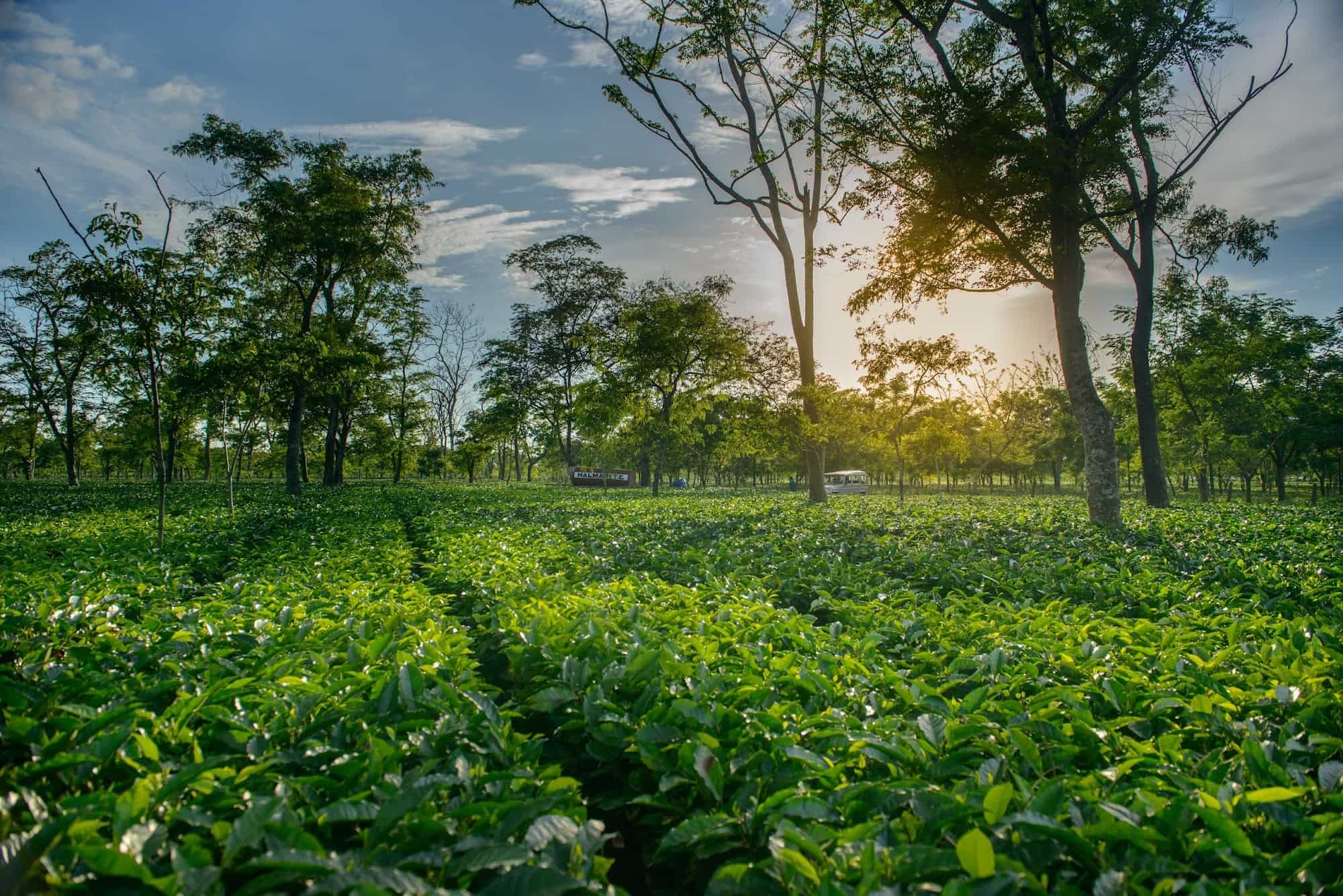

Tea Gardens of Assam: A Journey Through Lush Greenery & Aromas
By JKV Travel
When you think of Assam, the first things that often come to mind are the mighty Brahmaputra River, vibrant tribes, and the rich biodiversity of Kaziranga. But nestled amidst the misty hills and emerald valleys of this enchanting northeastern state lie Assam’s world-famous tea gardens a sprawling green paradise that not only defines the landscape but also shapes the culture and economy of the region.
Welcome to a fragrant journey through the tea-scented soul of Assam, where every breeze carries the earthy notes of fresh tea leaves, and every sunrise bathes the gardens in golden hues.
The Legacy of Assam Tea – A Brew Steeped in History
Assam is one of the largest tea-producing regions in the world, accounting for over 50% of India’s total tea output. The story of Assam tea dates back to the early 19th century when British colonists discovered indigenous tea plants growing wild in the region. Unlike the Chinese variety, the Assamica tea plant (Camellia sinensis var. assamica) thrived in the humid, low-lying plains along the Brahmaputra River.
Today, Assam tea is globally renowned for its robust flavor, rich color, and malty taste, making it a favorite for breakfast blends like English Breakfast and Irish Breakfast.
A Visual Symphony – Exploring the Tea Gardens
Traveling through Assam's tea estates feels like stepping into a living painting. The scenery is straight out of a dream — endless rows of neatly trimmed tea bushes, mist floating above the canopy, and women in colorful saris plucking leaves with rhythmic grace.
Some of the most famous tea estates you should explore:
-
Halmari Tea Estate (Dibrugarh): Known for producing premium orthodox teas, Halmari is one of the oldest and most award-winning tea gardens in Assam.
-
Manohari Tea Estate: This estate produces luxury teas like Manohari Gold, which has been auctioned at record prices.
-
Mokalbari Tea Estate: Nestled near Tinsukia, it offers scenic beauty and guided tours showcasing tea production.
-
Jorhat Tea Bungalows: Jorhat is often considered the ‘Tea Capital of Assam.’ Visitors can stay in old colonial bungalows and learn about the British-era legacy of tea.

From Leaf to Cup – The Tea Making Experience
Visiting an Assam tea estate isn’t just about soaking in the scenery it’s about immersing yourself in the journey of tea.
Most tea gardens offer guided factory tours, where visitors witness the meticulous process of tea making from plucking to withering, rolling, fermenting, drying, and finally grading. The experience ends with a delightful tea-tasting session, where you’ll learn how to identify different flavors, body, and aroma.
Whether it’s a strong CTC brew or a delicate orthodox blend, tasting tea at its birthplace is an experience like no other.
Meet the Tea Pluckers – The Unsung Heroes
One of the most soulful moments in your journey through Assam’s tea gardens will be meeting the women tea pluckers, many of whom belong to the indigenous communities of Assam. Their swift, skilled hands and bright smiles are the lifeblood of the tea industry. Engage in conversations, click photographs, and listen to their stories it will add a deeper emotional connection to your trip.
Best Time to Visit the Tea Gardens of Assam
The ideal time to explore Assam’s tea estates is from March to June and October to December. The weather is pleasant, the gardens are lush, and the tea-making process is in full swing during these months.
Delight in Local Flavors
While you’re exploring tea gardens, don’t forget to try Assamese cuisine from tangy fish curries to traditional thalis, bamboo shoot pickles, and sweet pithas. Pair it with fresh-brewed Assam tea, and your taste buds will thank you.
Photography & Nature Walks
Assam’s tea gardens are a paradise for nature lovers and photographers. Sunrise walks, butterfly spotting, birdwatching, and scenic trails are just a few activities to enjoy during your stay. Capture the golden hours when sunlight dances across the tea leaves it’s pure magic.
FAQs About Assam Tea Gardens – By JKV Travel
1. Why is Assam famous for tea?
Assam is known for producing rich, bold, and malty tea, grown in its lush valleys along the Brahmaputra River. It’s one of the world’s largest tea-producing regions.
2. Which are the best tea gardens to visit in Assam?
Some of the best include Halmari Tea Estate, Manohari Estate, Mokalbari Tea Estate, and tea bungalows in Jorhat and Dibrugarh.
3. What is the best time to visit Assam’s tea gardens?
March to June and October to December are ideal for visiting due to pleasant weather and active tea production.
4. Can I stay in a tea estate?
Yes, several estates like Wild Mahseer and Thengal Manor offer charming stays in heritage bungalows amidst tea gardens.
5. What activities can I do in a tea garden tour?
You can enjoy estate walks, tea tasting, factory visits, photography, cultural interactions, and local cuisine.
Final Sip – Why You Should Visit Assam’s Tea Gardens
A journey through the tea gardens of Assam is more than just a travel experience it’s a sensory celebration. From the rolling green hills and earthy aromas to warm cups of freshly brewed tea and conversations with the locals, every moment here connects you with the land and its legacy.
So if you're looking for a unique travel experience peaceful, immersive, and fragrant with tradition the tea gardens of Assam await you.





 More
More





